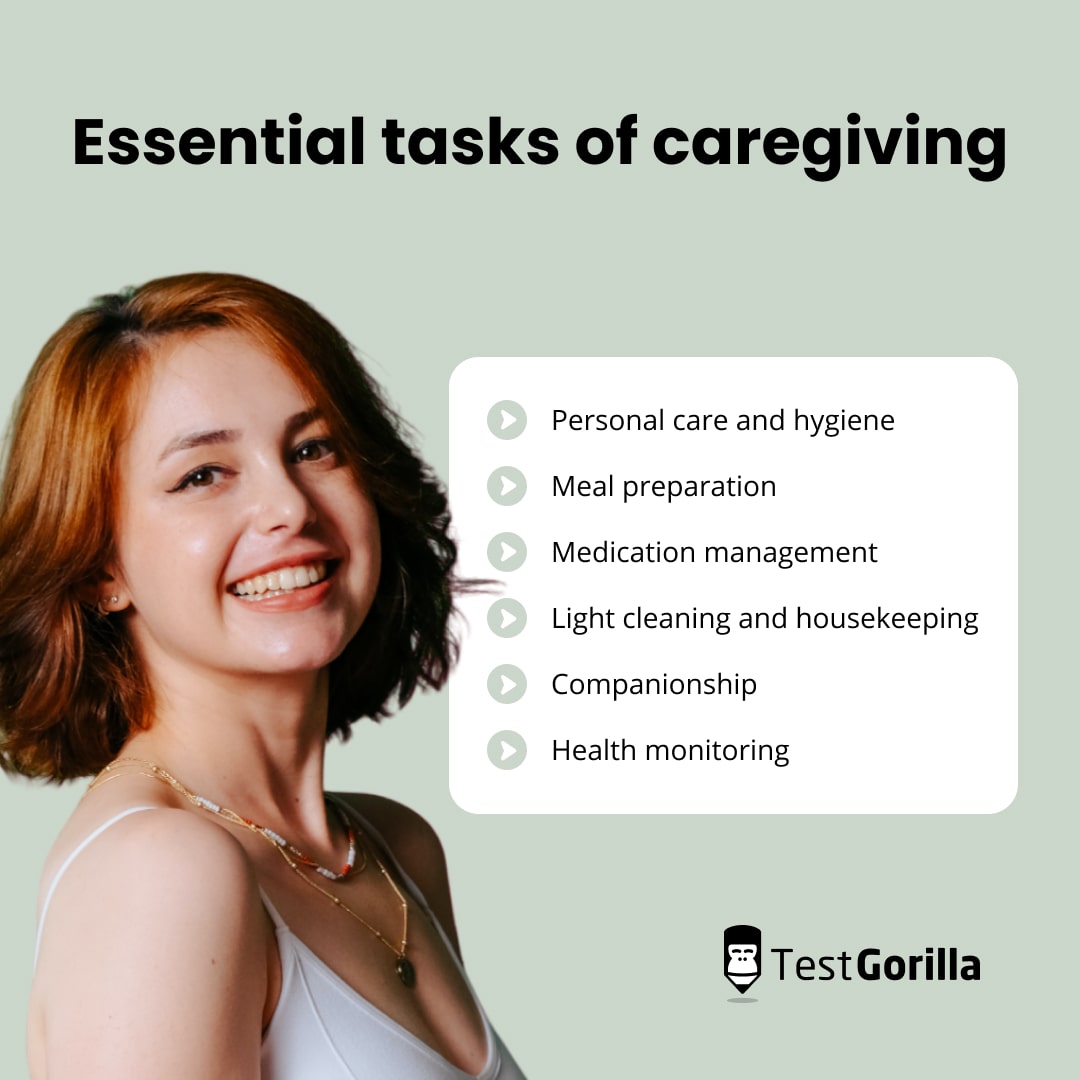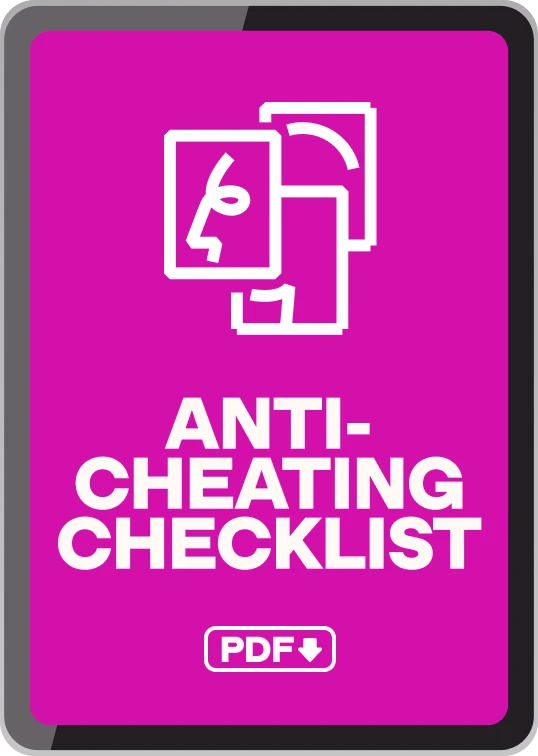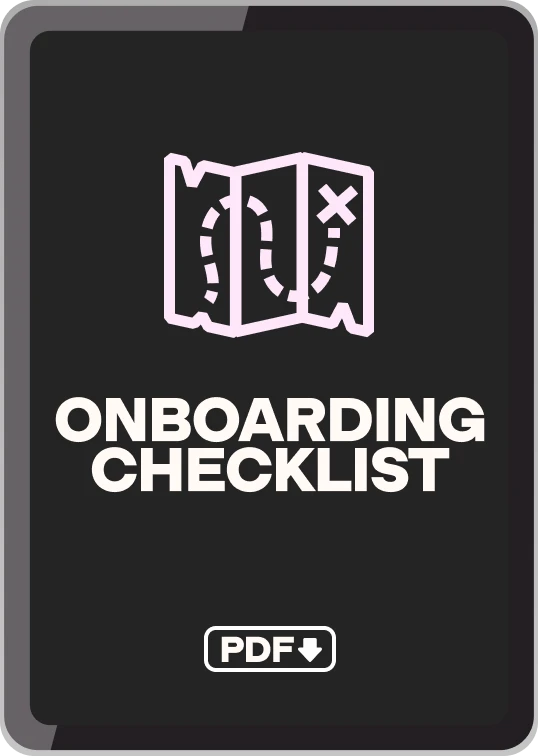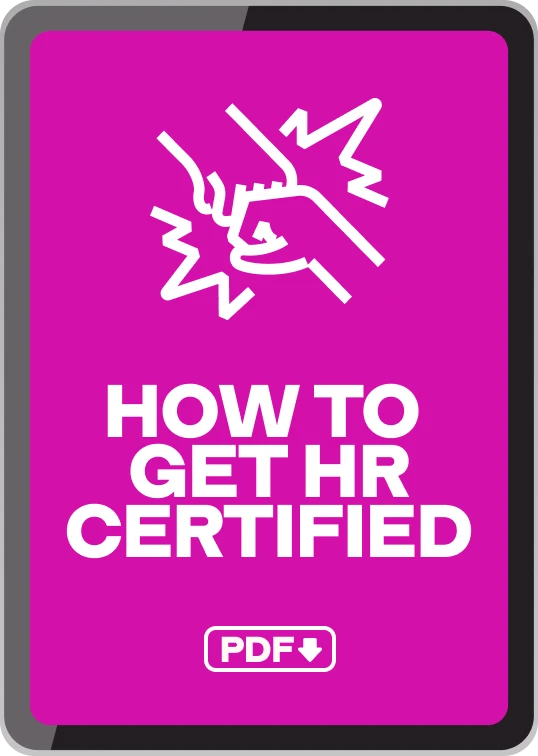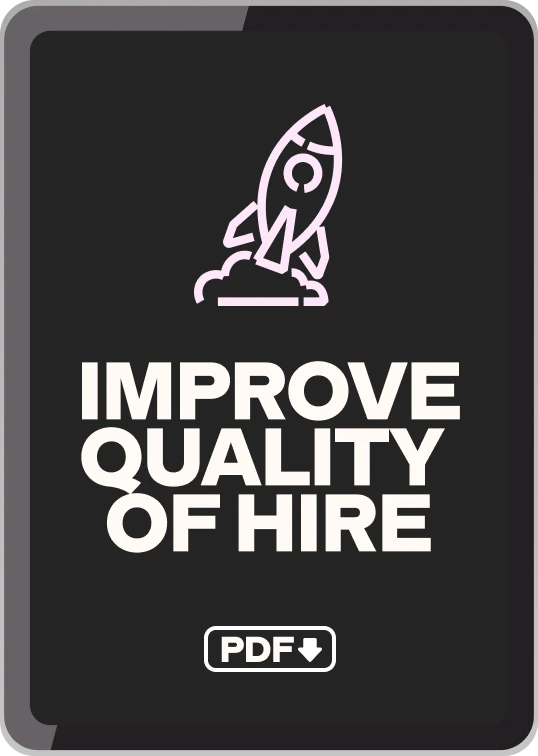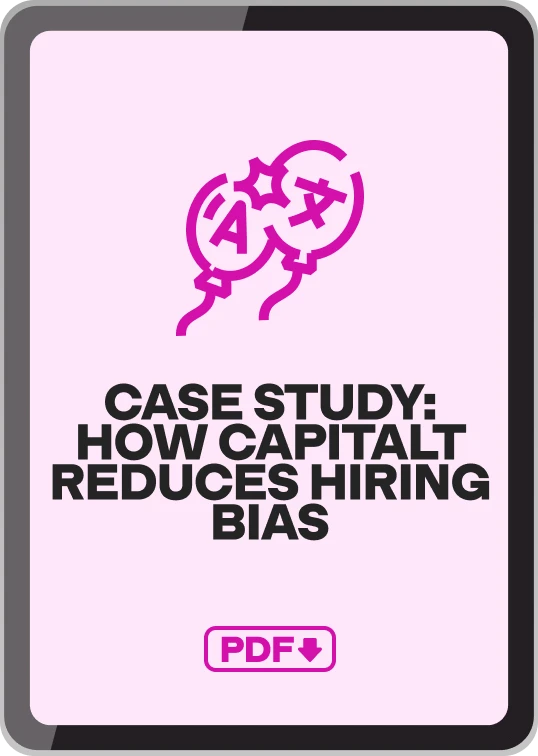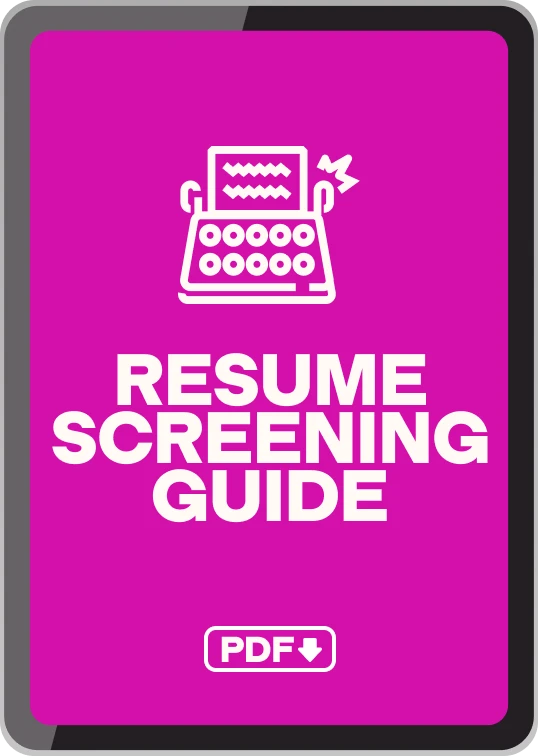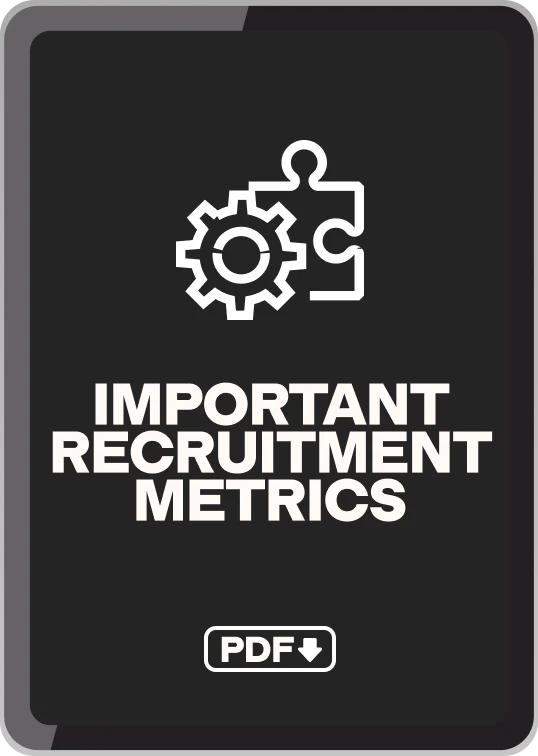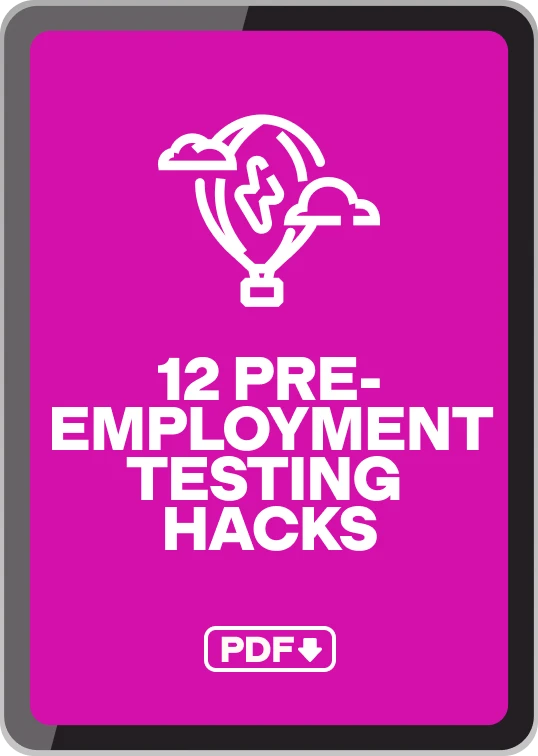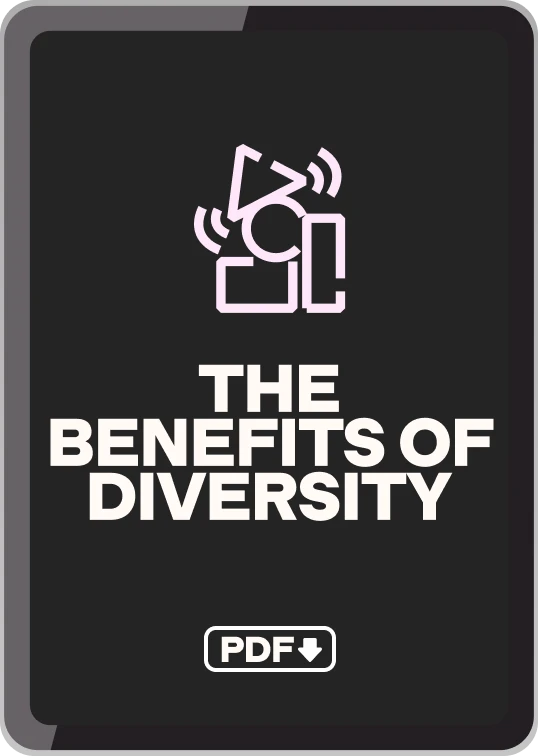How to hire a caregiver
Sometimes the people we love can find themselves in a situation where they’re incapable of performing basic tasks and require a helping hand. Or we might be the ones who need assistance.
While friends and family can help, they might not be available full-time because of their own commitments. This is where hiring a caregiver to step in during challenging times can be invaluable. Hiring a skilled and experienced caregiver can make a huge difference in the day-to-day life of the person who needs help.
However, knowing how to hire a caregiver is vital to choosing the best person to care for you or your loved ones.
In this article, we’ll explore the different skills a caregiver should have in their arsenal and how you can improve the caregiver hiring process with the help of skill-based assessments.
Table of contents
What is a caregiver?
A caregiver is a professional who provides support, care, and assistance to individuals incapable of performing specific tasks due to old age, illness, disability, or other circumstances.
Their daily routine and tasks of a caregiver may change depending on the individual’s needs and requirements. They might need to perform certain physical tasks such as household chores or feeding the person.
The job also has an emotional aspect to it; the caregiver must be sufficiently compassionate and empathetic to care for other people.
Some of the essential tasks of caregiving include:
Personal care and hygiene: Bathing, dressing, grooming, and toileting are key tasks for caregivers
Meal preparation: Caregivers need to prepare meals according to dietary restrictions and preferences and also assist with eating if necessary
Medication management: Caregivers keep track of the client's medication schedule and ensure they take their meds on time
Light cleaning and housekeeping: While caregivers aren't cleaners, they might need to assist with basic housekeeping tasks like doing laundry, washing dishes, dusting, vacuuming, and other household tasks
Companionship: Among the most important tasks of caregivers is to talk with the people they care for and provide emotional support and companionship
Health monitoring: Caregivers need to keep an eye on the client's health and report any changes to healthcare professionals or family members
A caregiver generally works directly with the person or patient requiring care, sometimes staying with the person around the clock. This can be done in the person’s home, a relative’s place, or any other designated residence deemed safe for the individual’s health and well-being. Additionally, caregivers can also work in a medical facility or nursing home.
Caregiver hard skills
Caregivers need certain hard skills to be able to meet the needs of the person they’re caring for. Here are some of the most important ones:
Basic medical knowledge
Caregivers must be familiar with common health conditions, medications, dosage instructions, and potential side effects. Adhering to the prescribed schedule and dosage is vital for the health and well-being of the individual.
Medical knowledge will also help them understand medical directions, recognize symptoms, and effectively communicate about the individual’s condition to healthcare professionals.
Vital sign monitoring and first aid
The caregiver is responsible for monitoring and recording vital signs regularly and preventing – or addressing – any emergencies. This can include monitoring temperature, blood pressure, pulse, and respiratory rate.
If there’s a sudden deviation in the readings or if an emergency occurs (like choking, injury, or cardiac arrest), the caregiver must be able to administer CPR and perform basic first aid. Providing immediate assistance before a medical team arrives can be life-saving.
Personal-care assistance
Caregivers usually need to assist with activities of daily living (ADLs) and should be skillful and comfortable in helping individuals with everyday tasks like bathing, grooming, dressing, and mobility.
They may also need specialized skills depending on the needs of the individual. For instance, pediatric, palliative, or post-surgical care often require additional training and expertise. Caring for people who have conditions like dementia might also require special skills.
Meal planning and preparation
Nutrition plays a vital role in the overall well-being and health of the person. The caregiver you hire should have knowledge of the nutritional content of food and prepare foods according to nutritional needs or dietary restrictions. This includes familiarity with food allergies, portion control, and maintaining a balanced diet. In some instances, they might need to follow a dietitian’s advice on how to prepare the person’s food.
Along with monitoring and documenting medical equipment readings, caregivers should also be skillful enough to operate the equipment. This includes devices like glucose meters, blood pressure monitors, nebulizers, wheelchairs, and insulin pumps.
Knowing the proper operation of such equipment is essential as it can mean the difference between life and death.
Caregiver soft skills
Providing care comes with much more responsibility than just the technical aspects of the job. Soft skills enable caregivers to connect with the persons under their care on a deeper level and be compassionate and understanding.
Empathy and compassion
Empathy and compassion are some of the most important skills for a caregiver. Most caregivers work with severely ill, paralyzed, or differently abled individuals. They must be able to empathize and relate to the emotions and challenges those in their care face.
Empathy and care can help build trust between the caregiver and the individual and create a supportive environment that’s essential for their well-being and recovery.
Communication skills
Caregivers must establish rapport with the individual and their families and have excellent communication skills. They should be able to listen actively and patiently to understand the needs and preferences of the individual.
This becomes all the more necessary if the person has physical or cognitive limitations and can’t communicate as clearly as others. It’s vital for the caregiver to understand what the person needs, even if they aren’t able to ask for it.
Flexibility and problem-solving
Caregiving comes with unpredictable schedules, changing circumstances, and unexpected events. Caregivers should be flexible in their approach and adjust to the person’s plans and requirements as needed. They also need to have strong problem-solving skills to identify issues and find appropriate solutions.
It’s not necessarily about reacting to situations, either – caregivers need to be proactive and prevent any mishaps before they occur. Caregivers are responsible for the well-being of those in their care and hence always need to be reliable and think fast.
Time management
Effective time management skills are essential to the caregiver’s daily tasks. They often have multiple responsibilities and duties to juggle and need to prioritize them so that every task is completed before the deadline.
Proper time management is also necessary for providing adequate care to individuals. Caregivers must ensure that they are administering medicines as prescribed and following instructions given by medical personnel.
Emotional resilience
Caregiving can be emotionally draining, especially when working with individuals suffering from a terminal illness or a declining physical or mental condition. Caregivers need emotional resilience and the ability to cope with stress and maintain their own emotional well-being amidst a medley of stress and emotions.
How to test caregiver skills
One in five Americans is caring for others, be it their family, friends, or others. This shows how difficult it can be to find an experienced caregiver who’s reliable, skillful, and adaptable to your needs.
Evaluating every applicant before hiring is necessary, even if they come highly recommended by your friends or family.
But if you get many applications, it can become overwhelming to identify the best candidate. So, you can streamline your caregiver hiring process by leveraging the pre-employment skills testing by TestGorilla.
Online assessments are a great way to shortlist unqualified candidates without interviewing everyone. Here are some tests that you can combine to prepare a skills assessment for your caregiver recruitment:
Communication: The caregiver needs to constantly interact with the individual in their care. You can objectively evaluate their communication skills with this test.
Time management: Hire caregivers that can adhere to strict timelines of medication and handle multiple tasks efficiently.
Critical thinking: Assess the critical-thinking abilities of the caregiver and see how they can adapt to changing circumstances with this test.
Understanding instructions: This test evaluates a caregiver’s ability to understand and follow instructions appropriately, be it about medical care or daily tasks.
Problem-solving: Caregivers face numerous challenges while working. This test will assess how they analyze and respond to complex situations.
Where to find a caregiver
Now that you know what skills to look for, it’s time to look for the best caregiver. Here are some common places where you can find potential caregivers:
Home care agencies
Home care agencies specialize in providing medical and daily assistance and have a pool of talented and vetted caregivers available for hire. You can contact a few agencies to enquire about their hiring procedures and fees.
Local colleges and nursing schools
You can also get in touch with local colleges, nursing schools, or training programs to find a skilled personal assistant. These organizations train caregivers diligently and also take care of the recruitment, screening, and matching process.
Online platforms
Several online platforms, such as Care.com, CaregiverJobsNow, and CareLinx, connect families with caregivers. There, you can create job postings, review candidates, and communicate directly with them to find a good fit. Writing a strong home health care aide job description can help you stand out and attract the best talent.
You can also use regular job portals such as Monster and Indeed, as well as community social media groups to attract qualified caregivers.
Recommendations and referrals
You can check in with your personal network and seek recommendations from friends, relatives, neighbors, and colleagues who’ve had positive experiences with local caregivers.
Personal recommendations are extremely valuable, because they provide firsthand knowledge of the caregiver’s skills and reliability.
Caregiver job description template
Below, you’ll find a job description template for a caregiver for an elderly person. You can copy and paste it and adapt it to your own needs.
Job Title: Full-time caregiver for an elderly person in [area]
Job Description:
We are looking for a kind, compassionate, and attentive caregiver to help us care for [our granddad/uncle/an elderly woman/etc.]
The caregiver will provide daily care to [X] in their home. This will involve assisting with everyday tasks like meal preparation, cleaning, and housekeeping, and also personal care tasks such as bathing, dressing, and grooming. The caregiver must also accompany [X] for a daily walk in the neighborhood and make sure they’re taking their medication according to a predetermined schedule.
Responsibilities:
Provide assistance with personal care tasks, such as bathing, grooming, and dressing
Assist with daily living activities including meal preparation, medication reminders, light housekeeping, and running errands
Accompany the person on a daily walk in the neighborhood and help them do exercises prescribed by their physical therapist
Monitor the person’s health and behavior let us know if any significant changes occur
Accompany the person to medical appointments and social events
Provide companionship in the form of talking, playing games, or watching television together. [X] loves to discuss current events and is a passionate reader of modern literature and science fiction!
Maintain a safe, clean, and healthy environment
Respect the person’s privacy
Implement and maintain routines that ensure consistency and familiarity for the client
Perform other duties as assigned by the family
Requirements:
Prior experience in a caregiving role, preferably with elderly clients
CPR and first-aid certification
Certification in personal care or a related field is a plus
A clear understanding of personal boundaries and ethical caregiving practices
Physical ability to lift and turn a person
Strong communication and interpersonal skills
Patience, empathy, and a caring demeanor
Able to work independently with minimal supervision
Valid driver's license and reliable transportation
We’re looking for someone who’s compassionate, patient, and understanding. If you have a caring nature and a calling to improve the lives of others, we'd love to hear from you.
How much does a caregiver cost? The average salary of a caregiver
A survey conducted by AARP and the National Alliance for Caregiving in 2020 found that the number of caregivers increased by 9.5 million from 2015 to 2020. The average salary of a caregiver depends on whether they’re working through an agency or providing special care on their own.
A large number of caregivers in the USA (around 53 million) provide unpaid care to a family member or friend but don’t consider themselves professional caregivers.
According to Indeed.com, the average salary of a caregiver in the United States is $36,591 per year or $15.64 per hour. Their salary depends on a number of factors, including their experience, location, responsibilities, whether they have medical training, and more.
In-home caregivers tend to earn more as they provide uninterrupted care to individuals.
Caregiver interview questions
Once you assess potential caregivers’ skills, you can invite them to an in-person interview to gain a better understanding of their abilities to care for someone. It’s a good idea to meet with the person who will be under their care to also take into consideration personal preferences.
Here are some sample interview questions you can ask candidates to make sure you’re able to hire the right person:
Can you describe your experience with providing care for elderly patients?
What would you do if a person refuses to take their medication?
Can you describe a time when you had to handle a medical emergency? What was the outcome?
How do you ensure the dignity and privacy of a person during personal care tasks?
How do you handle the emotional aspects of caregiving, especially when dealing with clients who are seriously ill or at the end of life?
What strategies do you use to manage stress when working with a difficult patient?
Have you had experience in dealing with clients with special needs, such as dementia or mobility issues? Can you share your approach?
How would you handle a situation if a client fell or injured themselves?
What's your experience in caring for someone with depression?
How do you encourage a person to maintain their independence while still ensuring their safety and wellbeing?
How would you manage a disagreement with someone under your care?
Can you share an instance where you've had to share difficult news or updates to a person's family?
How familiar are you with preparing meals for diabetics?
Have you ever had to handle a situation where a client was being abusive or overly difficult? How did you handle it?
How would you react if a client told you something in confidence that you felt should be shared with their family or healthcare team?
Hire a caregiver without bias
Hiring the right caregiver is essential for the wellbeing of the person they’ll be working with, but the caregiver recruitment process can be tiring and time-consuming if you don’t do it correctly. If many people apply for the job, it can be challenging to differentiate among them through resumes only.
You can use TestGorilla’s test library to pick pre-made tests or customize your own to hire a caregiver without any bias. Combine up to five assessments in a single test to get a good perception of a caregiver’s abilities and shortlist the ones with better skills without having to interview each applicant individually.
If you’re looking to hire someone who has specific experience with managing long-term health conditions and providing medical care, check out our guide on how to hire a home health aide.
Reinvent your hiring today and state a free trial of TestGorilla to hire the best caregiver.
Related posts
You've scrolled this far
Why not try TestGorilla for free, and see what happens when you put skills first.
Latest posts
The best advice on pre-employment testing, in your inbox.
No spam. Unsubscribe at any time.

Hire the best. No bias. No stress.
Our screening tests identify the best candidates and make your hiring decisions faster, easier, and bias-free.
Free resources
This checklist covers key features you should look for when choosing a skills testing platform
This resource will help you develop an onboarding checklist for new hires.
How to assess your candidates' attention to detail.
Learn how to get human resources certified through HRCI or SHRM.
Learn how you can improve the level of talent at your company.
Learn how CapitalT reduced hiring bias with online skills assessments.
Learn how to make the resume process more efficient and more effective.
Improve your hiring strategy with these 7 critical recruitment metrics.
Learn how Sukhi decreased time spent reviewing resumes by 83%!
Hire more efficiently with these hacks that 99% of recruiters aren't using.
Make a business case for diversity and inclusion initiatives with this data.

